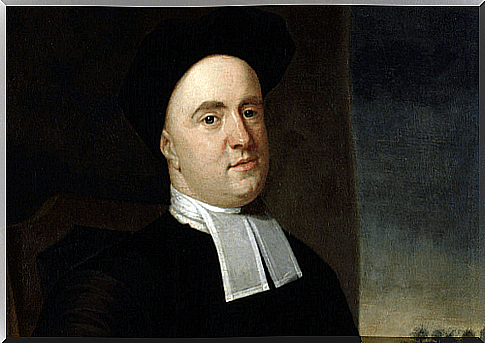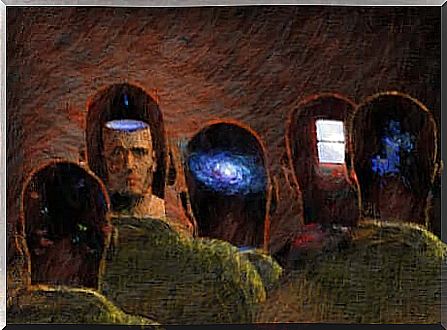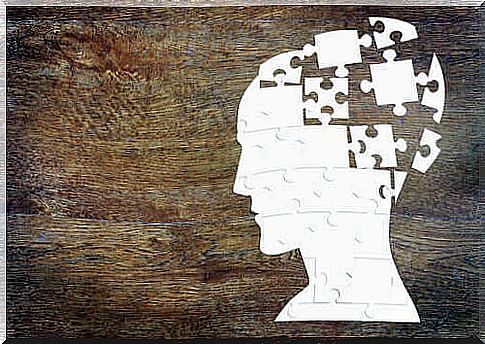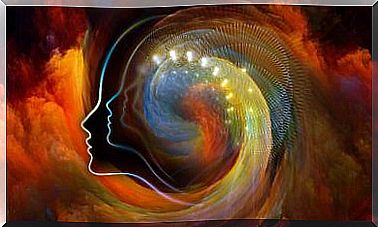George Berkeley: Biography And Work

George Berkeley (1685-1753) was one of the most important scientists of his century. Known for his empirical philosophy and his defense of idealism, he was also a bishop, philosopher and humanist. He harshly criticized the great philosophers who preceded him, such as Descartes or Locke.
Idealism states that everything exists to the extent that we can perceive it with our senses, except for the spiritual sphere. Berkeley’s contributions have been very important in the philosophical, physical, psychological and even medical and mathematical fields. He was a great thinker and produced an extensive bibliography worth knowing.
Brief biography of George Berkeley
George Berkeley was born in Dysert (Ireland) in 1685 and died in Cloyne (Ireland) in 1753. He studied science and literature at Trinity College in Dublin, where he also worked as a teacher to perfect his studies of Greek and Hebrew.
In constant contact with the works of great thinkers such as Locke, Hobbes, Descartes and Newton, he developed the concept of immaterialist or idealistic philosophy. Between 1707 and 1710 he published several important works, among which the Treatise on the principles of human knowledge stands out . In 1710 he became an Anglican priest.
George Berkeley married in 1728 to Anne Foster, a talented intellectual who defended her husband’s philosophy until his final days. Between 1728 and 1731 he settled in the American colonies, more precisely in Rhode Island. There he awaited the King’s funding to found a missionary center and educate the natives.
Not getting the funds, he decided to return to Europe, settling in London in 1732, and later in Cloyne. It remained there until 1744, years in which important works such as the Alcifrone, Essay on a new theory of vision and Siris saw the light . Tired and dejected by the death of one of his children, he finally died in 1753, leaving a great scientific and philosophical legacy to posterity.

George Berkeley and philosophical idealism
Contrary to Locke and Hobbes, Berkeley embraced philosophical immaterialism. According to this philosophical current, we know things not only as such, but if we can feel them with our senses. In other words, we can only accept our mental representations as truthful.
Berkeley proposes the principle of idealism by explaining that “the being of things” lies in their “being perceived”. In fact, the substance would not be the matter, but only the spiritual substratum. According to Descartes, spirituality is the fruit of our thoughts and this is irrefutable proof of its existence and its truthfulness.
Descartes rejects the world of feelings; the senses deceive us and are consequently not reliable. Knowledge would happen in an innate way and it is reason that leads us to it. Descartes doubted everything and, when one doubts, one is aware of one’s existence: cogito ergo sum. Although man is an imperfect being, he manages to conceive the idea of a perfect being: God.
But how can man, an imperfect creature, have conceived something perfect? Who put this idea in his mind? The answer to this question can only be God himself.
The other side of the coin is represented by Berkeley, whose empiricism is, by comparison, extreme. There is no longer talk of knowing through the object; it is the object itself that becomes real the moment it is perceived. But if objects exist only as a result of our mental representations, there must be something outside our mind that acts as an impulse to our perceptions. It is God, the spirit that allows us to perceive through things.
With their obviously opposing ideas, Berkeley and Descartes are like two sides of the same coin. Two distinct theories about knowledge and metaphysics that lead to the same answer: God.
George Berkeley and the psychology of vision
Berkeley describes the way humans perceive and interact with objects. Its basic idea is that our knowledge is real only if there is conformity between our ideas and the reality of things. He also adds that “having an idea is the same as perceiving”.
According to this paradigm, nothing that we perceive as such exists in nature. Existence can only derive from perception and from what is perceived. In fact, this phenomenon is observable in children when, playing hide and seek, they close their eyes to make themselves invisible.
According to Berkeley, we do not see our surroundings until we have ideas that, through them, allow us to “see”. Consequently, objects do not exist outside our mind. This is a completely revolutionary approach that opens the doors to relativism. Everyone sees their reality on the basis of their own knowledge.

Final reflections
Berkeley’s works expose two main problems.
- The relationship between spirit and matter.
- The reality of the bodily world outside of ourselves.
If Berkeley reduces every external phenomenon to an internal experience, we deduce that the mind is a container of ideas from which sensations are deduced. This proposal will have a strong impact on the philosophy and psychology of the entire nineteenth and twentieth centuries.
Rejecting the theses of the important thinkers who preceded him, George Berkeley argues that the human mind is composed of a set of ideas derived from our experience with different sensations. Man, therefore, does not interact with the objects themselves, but with the mental representation he has of these objects.
Thus, for Berkeley, everything that does not exist in our mind does not exist in our universe. This sentence is deeply reminiscent of another sentence pronounced a century later by Wittgenstein: “The limits of my language are the limits of my world “.
As for the psychological impact of Barkeley’s theory, currents such as structuralism and cognitive psychology will share some aspects. A scientist and thinker who with his work has helped us to partly unravel the mysteries of the mind.









